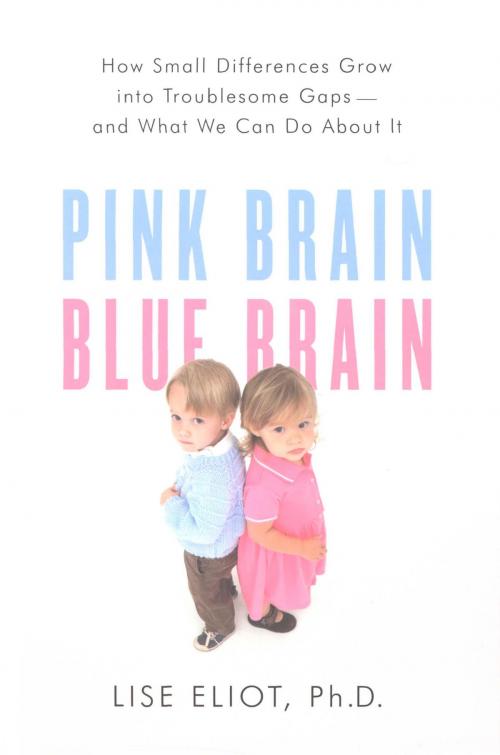Pink Brain, Blue Brain
How Small Differences Grow Into Troublesome Gaps -- And What We Can Do About It
Nonfiction, Science & Nature, Science, Biological Sciences, Biology, Family & Relationships, Babies & Toddlers, Infants & Toddlers, Parenting| Author: | Lise Eliot | ISBN: | 9780547391557 |
| Publisher: | HMH Books | Publication: | September 2, 2009 |
| Imprint: | Mariner Books | Language: | English |
| Author: | Lise Eliot |
| ISBN: | 9780547391557 |
| Publisher: | HMH Books |
| Publication: | September 2, 2009 |
| Imprint: | Mariner Books |
| Language: | English |
A precise scientific exploration of the differences between boys and girls that breaks down damaging gender stereotypes and offers practical guidance for parents and educators.
In the past decade, we've come to accept certain ideas about the differences between males and females—that boys can't focus in a classroom, for instance, and that girls are obsessed with relationships. In Pink Brain, Blue Brain, neuroscientist Lise Eliot turns that thinking on its head. Calling on years of exhaustive research and her own work in the field of neuroplasticity, Eliot argues that infant brains are so malleable that small differences at birth become amplified over time, as parents and teachers—and the culture at large—unwittingly reinforce gender stereotypes. Children themselves intensify the differences by playing to their modest strengths. They constantly exercise those “ball-throwing” or “doll-cuddling” circuits, rarely straying from their comfort zones. But this, says Eliot, is just what they need to do, and she offers parents and teachers concrete ways to help. Boys are not, in fact, “better at math” but at certain kinds of spatial reasoning. Girls are not naturally more empathetic; they’re allowed to express their feelings. By appreciating how sex differences emerge—rather than assuming them to be fixed biological facts—we can help all children reach their fullest potential, close the troubling gaps between boys and girls, and ultimately end the gender wars that currently divide us.
A precise scientific exploration of the differences between boys and girls that breaks down damaging gender stereotypes and offers practical guidance for parents and educators.
In the past decade, we've come to accept certain ideas about the differences between males and females—that boys can't focus in a classroom, for instance, and that girls are obsessed with relationships. In Pink Brain, Blue Brain, neuroscientist Lise Eliot turns that thinking on its head. Calling on years of exhaustive research and her own work in the field of neuroplasticity, Eliot argues that infant brains are so malleable that small differences at birth become amplified over time, as parents and teachers—and the culture at large—unwittingly reinforce gender stereotypes. Children themselves intensify the differences by playing to their modest strengths. They constantly exercise those “ball-throwing” or “doll-cuddling” circuits, rarely straying from their comfort zones. But this, says Eliot, is just what they need to do, and she offers parents and teachers concrete ways to help. Boys are not, in fact, “better at math” but at certain kinds of spatial reasoning. Girls are not naturally more empathetic; they’re allowed to express their feelings. By appreciating how sex differences emerge—rather than assuming them to be fixed biological facts—we can help all children reach their fullest potential, close the troubling gaps between boys and girls, and ultimately end the gender wars that currently divide us.















